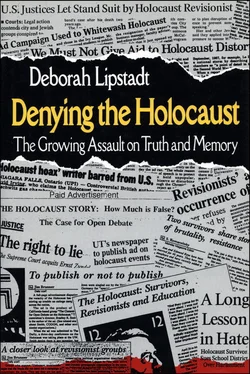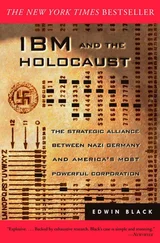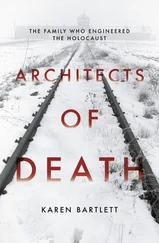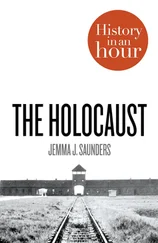Suggestions of Holocaust denial have come from French political figures as well. The leader of the far right National Front, Jean Marie Le Pen, declared in 1987 that the gas chambers were a mere “detail” of World War II. In a radio interview he asserted that he had never seen any gas chambers and that historians had doubts about their existence. “Are you trying to tell me [the existence of gas chambers] is a revealed truth that everyone has to believe?” Le Pen asked rhetorically. “There are historians who are debating such questions.” {34} 34 Miller, One by One by One, p. 137; Jewish Telegraphic Agency, Oct. 23, 1987.
Le Pen, who has complained that there are too many Jews in the French media, is considered the leader of Europe’s extreme right. A charismatic speaker, he has exploited French fears about the immigration of Arabs from North Africa and has espoused the kind of right-wing antisemitism associated with the Dreyfus affair. Popular support for Le Pen in France has been as high as 17 percent. In the 1988 presidential election he received 14.4 percent of the popular vote, coming in fourth overall. {35} 35 Time, May 28, 1990; U.S. News & World Report, May 28, 1990, p. 42; Los Angeles Times, May 29, 1990, pp. HI, H7. In the following parliamentary election Le Pen’s party was routed but this resulted from a change in the voting system and not a loss of support. Miller, One by One by One, p. 138.
Shades of Holocaust denial were evident at the Klaus Barbie trial when defense attorneys, attempting to diminish the significance of the Holocaust, argued that forcing people into gas chambers was no different from killing people in a war, and that it was no more of a crime to murder millions of Jews because they were Jews than it was to fight against Algerians, Vietnamese, Africans, or Palestinians who were attempting to free themselves from foreign rule. {36} 36 Jewish Telegraphic Agency, Oct. 23, 1987; Alain Finkielkraut, Remembering in Vain: The Klaus Barbie Trial and Crimes Against Humanity (New York, 1989), pp. 35–44.
These slight-of-hand attempts at moral equivalence constitute a basic tactic of those who hover on the periphery of Holocaust denial. (See chapter 11 for an analysis of Holocaust relativism in Germany.)
In 1978 Louis Darquier de Pellepoix, Vichy France’s commissioner of Jewish affairs and the person responsible for coordinating the deportation of Vichy Jews to death camps, told the French weekly L’Express that the Nazi genocide was a typical Jewish hoax. “There was no genocide—you must get that out of your head.” Expressing the standard denier’s explanation for this hoax, he charged that the Jews’ aim was to “make Jerusalem the capital of the world.” The rather ambiguous headline of the article, which ran without any editorial comments, was “Only Lice Were Gassed in Auschwitz.” {37} 37 L’Express, Oct. 28-Nov. 4, 1978; Gill Seidel, The Holocaust Denial (Leeds, England, 1986).
Leon Degrelle, the leader of the World War II fascist movement in Belgium and a Nazi collaborator, called on the European right to accept neo-Nazis as honorable allies. He also wrote an “Open Letter to the Pope about Auschwitz,” informing the Polish-born cleric, who had witnessed the war at close range, that there were no gas chambers or mass annihilation in Hitler’s Third Reich and that Jews who had been killed were actually murdered by American and British bombings. {38} 38 New Statesman, Sept. 7, 1979, p. 332.
But one does not have to be a committed neo-Nazi to be receptive to deniers’ arguments. In Paris, in an interview with the leftist monthly Le Globe, Claude Autant-Lara, one of France’s most acclaimed film directors and at the time a member of the European parliament, described the Holocaust as a legend “stuffed” with lies and claimed that France was in the hands of a left-wing cabal dominated by Jewish internationalists and cosmopolitans. {39} 39 The Times, May 11, 1990; Jewish Week, Sept. 15, 1989.
In Austria, where the Kurt Waldheim affair uncovered hidden antisemitism, Holocaust denial has been centered around a number of neo-Nazi publications including the newspaper Sieg, which states that the number of Jews who died under Nazi rule was less than two hundred thousand. {40} 40 Dokumentationszentrum, 1988 Annual Report, Vienna, Austria.
The publisher, Walter Ochensberger, has been repeatedly convicted by Austrian courts for the crime of “incitement.” During lecture tours in various countries including the United States, he has preached the doctrine of denial. {41} 41 Austrian News, Embassy of Austria, Press and Information Dept., Washington, Oct., 1989.
The publisher of another neo-Nazi denial magazine, Halt, was indicted for Holocaust denial activities. {42} 42 Spotlight, June 1, 1992.
In addition to Seig and Halt, denial publications targeted at schoolchildren have appeared in Austria. {43} 43 In 1991, the Gallup organization conducted a poll of Austrian attitudes toward Jews commissioned by the American Jewish Committee. Fifty-three percent of the people surveyed thought it was time to “put the memory of the Holocaust behind us” and 39 percent believed that “Jews have caused much harm in the course of history.” An almost identical proportion believed that Jews had “too much influence” over world affairs; close to 20 percent wanted them out of the country. These statistics indicate a country “ripe” for an antisemitic ideology such as Holocaust denial. Fritz Karmasin, Austrian Attitudes Towards Jews, Israel and the Holocaust (New York, 1992).
Since the late 1980s the American Ku Klux Klan has established groups in both Germany and Austria. These groups have added Holocaust denial to their traditional racist extremism. {44} 44 Jewish Telegraph Agency, Aug. 18, 1992, p. 4; Nov. 11, 1992.
In certain parts of Europe, Holocaust denial has found its way into the general population. In the fall of 1992 a public opinion poll in Italy, where a wide array of denial publications have appeared, revealed that close to 10 percent of the Italian population believe the Holocaust never happened. {45} 45 Jewish Telegraphic Agency, Nov. 2, 4, 1992.
Denial arguments have permeated the work of those who would not describe themselves as deniers. An English play entitled Perdition charged that Zionist leaders both during and after the war were a separate class of rich capitalists who betrayed the Jewish masses to the Nazis. The playwright described the Holocaust as a “cozy set of family secrets, skeletons in closets.” In a key passage, the leading character charges that Jews who died in Auschwitz “were murdered, not just by the force of German arms but by calculated treachery of their own Jewish leaders.” {46} 46 Arab News, May 8, 1988.
Though the play did not deny the Holocaust, the result was the same: The perpetrators were absolved and the victims held responsible.
But it has not only been Europe that has witnessed this phenomenon. Since 1965, Holocaust denial material has been available throughout Latin America. In Brazil, much of it has been released by a publishing house specializing in Portuguese-language antisemitic materials. This publisher recently claimed that within four years of publication, one of its denial books had appeared in twenty-eight editions and was read by two hundred thousand people. (Though the figures may be highly inflated, the publisher did boost sales by offering bookstore owners extremely generous terms, allowing them to keep half the cover price as opposed to the usual 30 percent, and giving them 120 days to pay, a major benefit in a country with a 40 percent monthly inflation rate. Obviously, profit was not the publisher’s primary motive. {47} 47 New York Times, Dec. 10, 1989.
) Holocaust deniers have also been active in Argentina, Mexico, Chile, and Peru.
Читать дальше












